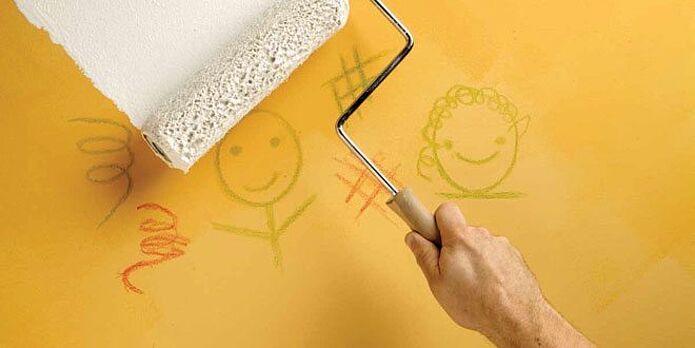Steps
1. Surface Preparation
All surfaces must be clean, dry and free from anything that will interfere with the adhesion of the materials to be applied. Remove loose and failing material by scraping or brushing with a stiff bristle brush to a sound edge. Feather sound edges with a fine grade abrasive paper. Prior to painting, the moisture content should not exceed 18%.
Remove all dust. Remove all visible signs of organic growth and treat the areas with an efficient mould killer in accordance with the manufacturer’s instructions. Allow to dry.
In areas with sound paint wash clean down with ZINSSER® Multi-Surface Degreaser & Cleaner to remove any contaminants. Rinse thoroughly with clean water to remove all residues. Allow to dry. Fill any cracks and small surface defects with a suitable filler as appropriate in accordance with the manufacturer’s instructions. Allow to dry. Rub down with a fine grade abrasive paper. Remove all dust.
2. Priming
Prime all areas of graffiti with one full coat of B-I-N® in accordance with the manufacturer’s instructions. Allow a minimum drying time of 45 minutes in normal drying conditions.
3. Decoration
Decorate with two full coats of PermaWhite® Interior Matt or Satin in accordance with the manufacturer’s instructions. Allow a minimum drying time of two hours between coats.
Note: Graffiti can be water soluble or solvent soluble therefore some areas may need a coat of Bulls Eye® 1-2-3 if graffiti bleeds through B-I-N®.



